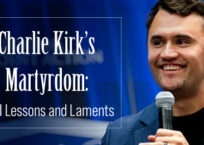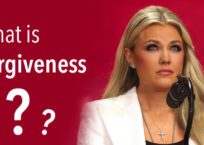
Written by Dr. Everett Piper
More than 60 years ago, in “The Abolition of Man,” C.S. Lewis challenged his readers to enter the town square and the marketplace of ideas with boldness and confidence. He argued that in failing to do so, we would become “men without chests;” a culture of heartless people divorced from any agreement of what is right and wrong; a society of disconnected individuals who care little for what is enduring, accurate or true.
The Oxford don warned of a time when questions would lie fallow in a field of disingenuous inquiry with little interest in a harvest of answers.
With the political season upon us, we face a time of big questions.
Life: When does it begin, when does it end, and who has the right to define it and take it?
Climate: Is the theory of anthropomorphic warming scientific, principled or opportunistic?
Sexuality: What is healthy and best for body, soul, family and society?
Tolerance: Are all worldviews and religions epistemologically, ontologically and morally equal?
Women: Is a female a biological fact? Should she have the right to her own bathroom, facilities and sport?
Feminism: Can you be a feminist if you deny the reality of the feminine?
Socialism: With 100 million already dead at its hand, why are we intent on repeating history?
Immigration: Can a nation exist if it doesn’t have clearly defined and defended borders?
Justice: If society rather than God defines justice, then isn’t the concept of what is just and unjust somewhat arbitrary, meaningless and potentially deadly?
These are fundamental questions. But do we really want answers? In the present political climate, do we care more about silencing our opponents than correcting our opinions? Do we want to learn, or are we content to lecture? Does our query assume that one position is going to be closer to the truth than another? Are we honest enough to want an answer even at the expense of being wrong?
In “The Great Divorce,” Lewis challenges our intellectual laziness and political expediency.
“Our opinions were not honestly come by,” he said. “We simply found ourselves in contact with a certain current of ideas and plunged into it because it seemed modern and successful … You know, we just started automatically writing the kind of essays that got good marks and saying the kind of things that won applause.”
He goes on:
“You and I were playing with loaded dice. We didn’t want the other to be true. We were afraid … of a breach with the spirit of the age, afraid of ridicule.”
“Having allowed [ourselves] to drift, unresisting …, accepting every half-conscious solicitation from our desires, we reached a point where we no longer believed the [the truth]. Just in the same way, a jealous man, drifting and unresisting, reaches a point at which he believes lies about his best friend.”
Lewis concludes:
“Once you were a child. Once you knew what inquiry was for. There was a time when you asked questions because you wanted answers and were glad when you had found them. Become that child again … You have gone far wrong. Thirst was made for water; inquiry [was made] for truth.”
The critical question for us today is obvious. Do we really want answers? Or are we more interested in seeking “good marks and saying the kind of things that win applause?” Do we embody childlike sincerity in wanting to know what is true, or do we look more like manipulative teenagers who are merely hungry for popularity? Do we want our arguments to be right, or would we rather be politically correct and “fashionable?”
Os Guinness, in his book “Time for Truth,” challenges our adolescent tendency to eschew the factual in favor of the faddish: “Truth does not yield to opinion or fashion,” he says. “It is simply true, and that is the end of it. It is one of the Permanent Things. Truth is true even if nobody believes it, and falsehood is false even if everybody believes it.”
Thus, both Lewis and Guinness make it clear that confidence in popular trends (i.e., fallacies of argumentum ad populum) has very little, if anything, to do with ideological veracity. Truth is not determined by vim, vigor or a vote.
In this New Year, perhaps our resolution should be to humbly set aside our adolescent desire for “good marks” and, instead, seek what is true (even if it is dreadfully unpopular) and give up what is false (even if it is a dearly loved passion).
The integrity of real questions demands nothing less.
Dr. Everett Piper, former president of Oklahoma Wesleyan University, is a columnist for The Washington Times and author of “Not A Day Care: The Devastating Consequences of Abandoning Truth” (Regnery 2017). This article was originally published at the WashingtonTimes.com.






















